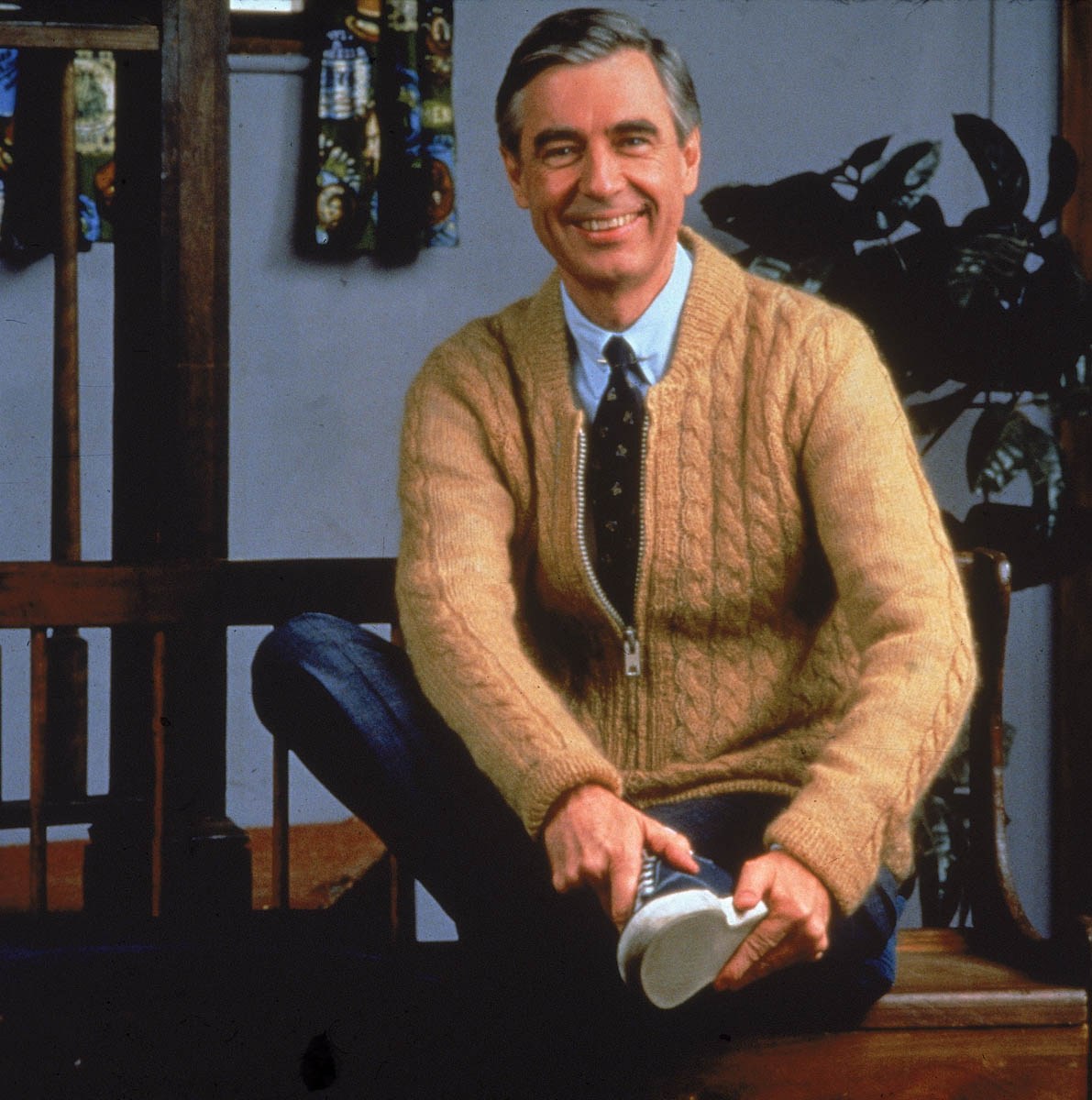The Mr. Rogers Cry Fest



Warning: You are going to need Kleenex. Like, a whole box of tissues. The Fred Rogers documentary Won’t You be My Neighbor? is basically a ninety-minute cry fest. I’m not an easy movie-crier, but I started crying in the first five minutes and did not stop until the end. Morgan Neville, the Oscar-winning documentarian behind 20 Feet From Stardom, has made a film that is half documentary about the life and work of Fred Rogers, and half gentle bath in Mister Rogers’ unwavering, incandescent acceptance and love.
Neville roots his film in the personal, eschewing interviews with famous people talking about what Mister Rogers’ Neighborhood means to them in favor of interviewing people who were close to Rogers in real life, either as family, co-worker, or friend. (Michael Keaton was a production assistant on the show so Neville definitely could have pulled celebrities, but he limits himself to Yo-Yo Ma, who talks about Mister Rogers’ interview style.) The portrait revealed is intimate and illuminating, connecting Rogers’ periods of childhood illness with his imaginary play on the show, and his own bullying as a heavy-set child with his dislike for bullies later in life. And you will cry a bunch as various people reflect on what Rogers’ compassion and empathy meant in their lives.
But Neville’s portrait also sneakily dispels a number of urban legends about Mister Rogers. He was a Navy SEAL who killed a bunch of people! Nonsense, says literally everyone—he never even served in the military. Likewise, the rumor of the tattoos hidden by his famous sweaters is shot down by archival footage of Rogers indulging in his daily swim. The film even touches on the decades of speculation about his sexuality. Francois Clemmons, who portrayed “Officer Clemmons” on the show, worked with Rogers for twenty-five years and is utterly dismissive of the notion that Rogers was gay. However, this jumps off into the one area where Mister Rogers’ famous acceptance was tested—Clemmons is gay, and Fred Rogers encouraged him to stay in the closet.
This is the weak spot of the documentary, for though Neville allows the topic to be raised, he shies from addressing it fully. He contextualizes Rogers’ reticence toward Clemmons’ sexuality as a product of The Times—it was the 1960s and an openly gay man on a children’s show would undoubtedly cost them sponsors, even get them booted off air. This is certainly true, and Rogers’ objection is clearly framed not as a rejection of Clemmons as a person but as worry for the show. But times change, and people change, and the documentary misses a step when we don’t get any context for if or how Rogers changed his mind on this topic. We must settle for Clemmons’ assurance that Rogers “came around” and Joanne Rogers, his wife, says they had “many” gay friends, and that is that.
Still, Won’t You Be My Neighbor? is a loving portrait of a loving man, and it is worth exploring not only what Mister Rogers meant to the world, but also what his message means to us today. It’s a reminder that we should never forget the lessons Mister Rogers imparted about acceptance. It’s a revealing look behind the scenes at the thought and effort that went into a goofy children’s puppet show, and an exploration of Rogers’ overarching philosophy that children need to know they’re loved in order to grow into healthy adults. And it’s an opportunity for catharsis as you are subjected to ninety minutes of Mister Rogers telling you that you are liked, just as you are.
